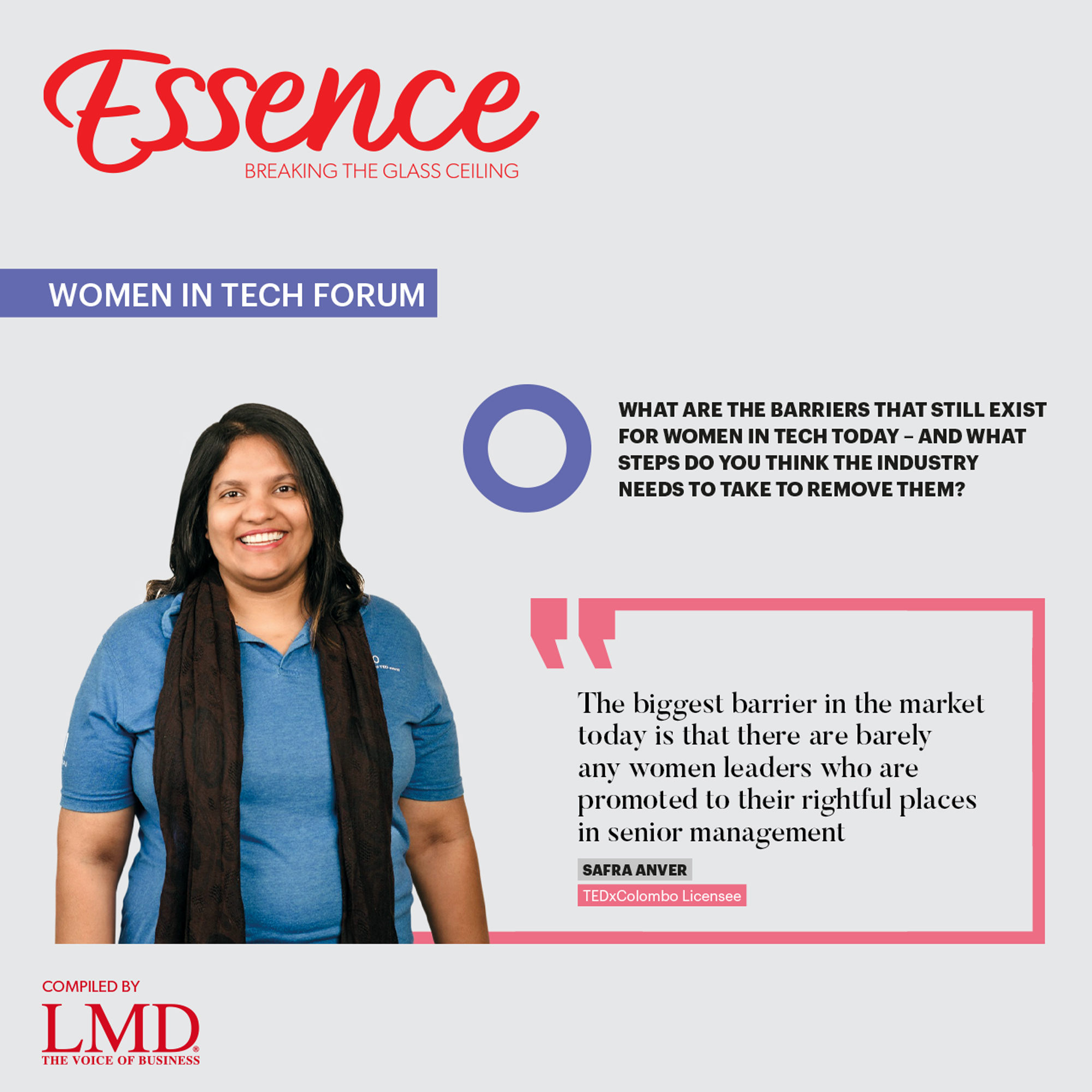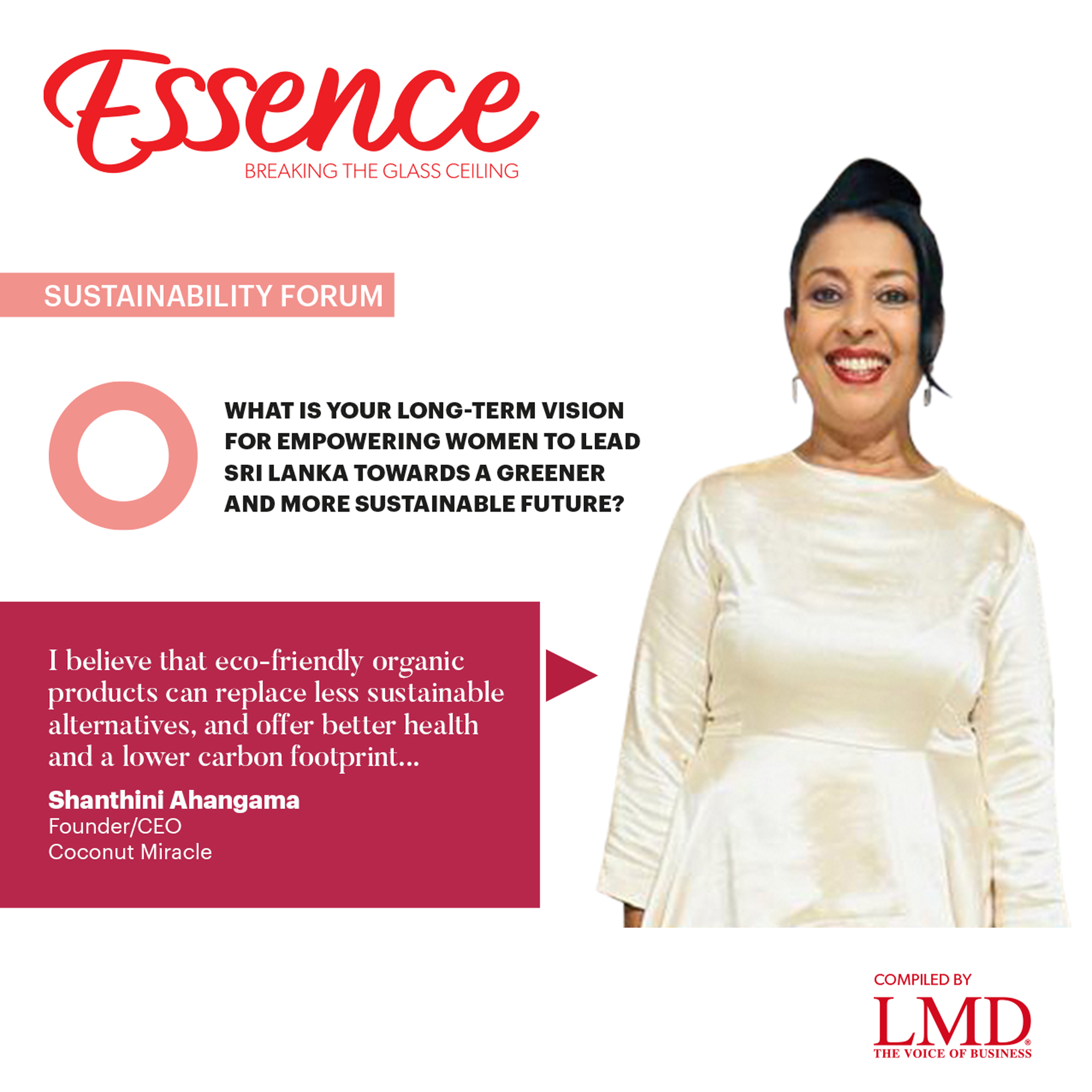Prime Group

Q: As far as women’s representation in business goes, how is Sri Lanka faring?
A: Sri Lanka has had a male dominant culture over the years. Yet, we women have had a feather in our cap beginning from when the nation had the first female prime minister in the world.
Today, the number of senior women leaders, entrepreneurs, policy makers, executives in corporate board rooms and high-level positions shows how far the country has come in terms of women’s representation in business.
Many women today are more career minded and outside the usual frame of being bound to stay at home attending to family chores. There have been more women participating in the corporate and business worlds, pursuing their higher education, and becoming qualified to hold top executive and managerial positions.
In Sri Lanka moreover, getting married, having kids and reaching the peak of one’s career most often rotates around the same time period, which can be challenging. Yet, over the years, our culture has been changing, and females have proven themselves to be very capable of juggling household chores and family simultaneously.
Q: What aspects of being a female leader are the most rewarding – and what are the most challenging?
A: The rewarding aspects of being a female leader are that you’re respected and allowed to be heard in any forum. Further, women leaders are provided the opportunity to make comments and remarks, even if you might be the only female participant on certain forums since Sri Lanka is still male dominated.
Women make great leaders because they have an innate ability to dream big, challenge assumptions and inspire teams. They know how to translate big ideas into concrete actions and results.
Also, women have natural leadership skills that they use to get things done. They are not afraid to show their emotions and are excellent at building relationships with people. They can connect emotionally, which is why they are often great leaders.
The most challenging issues faced by women leaders are due to stereotypes. Since men have been leaders for so long, the traits associated with leadership are often thought of as masculine.
I support mothers who are completing maternity, and encourage them to pursue their careers by availing themselves of ‘flexi’ hours and other options that would help them stay in the workforce.
There is so much talent, experience and knowledge that would be wasted if women end their careers after parenthood. So my main aim has been to reach out to many women facing such choices and support them in these difficult economic conditions to ensure that they build their futures.
Q: How would you define your leadership style? And how does being a woman influence it?
A: The leadership style that I practise could be defined as ‘participative.’ I try hard to obtain participative contributions, which creates a very conducive working atmosphere.
Women leaders are more transformational than male leaders. They function as role models for their subordinates. And they inspire and coach their teams, and care a lot about their team members’ personal development.
Also, women leaders emphasise teamwork and authentic communication. They have highly-developed interpersonal skills. They develop and maintain strong work relations with both junior and senior employees to streamline business operations.
Female leaders multi-task, and they have their own methods and skills. They have immense patience and very good listening skills. Women’s influence on leadership includes their resilience, humility, the ability to take risks, how they mentor and are of service to others.
Q: Is the gender gap closing in Sri Lanka?
A: The answer is very much a ‘yes’ as many male dominated professions today are being shared by women. Good examples are the police and armed services in Sri Lanka, which were totally male dominated areas; but today, a large number of cadres are females.
And the aeronautical field also has many female pilots. There are many more new avenues where a female presence is seen such as real estate, engineering and construction, to name a few.
The present generation and their outlook on life is helping to close the gender gap in Sri Lanka.
“The number of senior women leaders, entrepreneurs, policy makers, executives in corporate board rooms and high-level positions shows how far the country has come
Telephone 2699822
Email info@primelands.lk
Website www.primelands.lk





